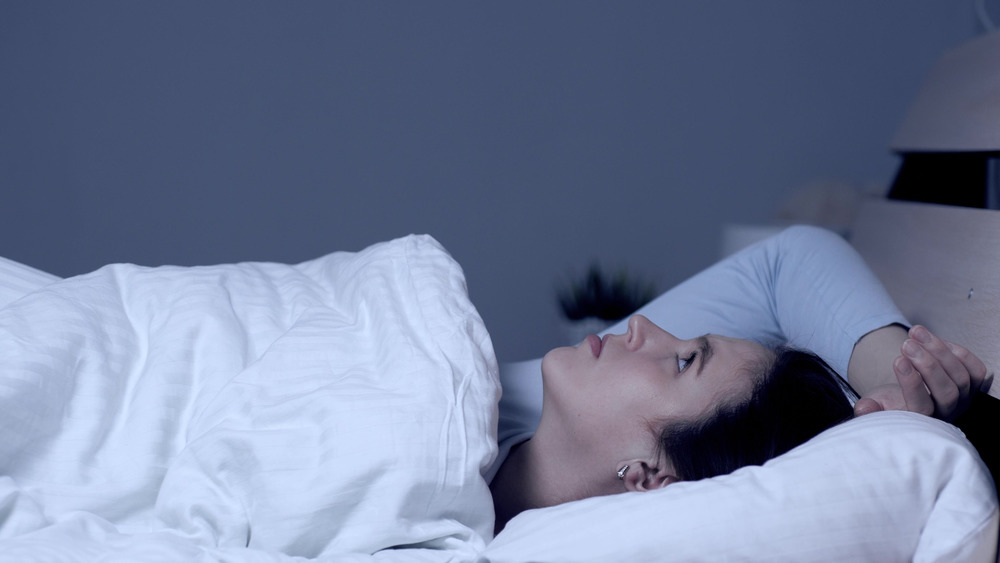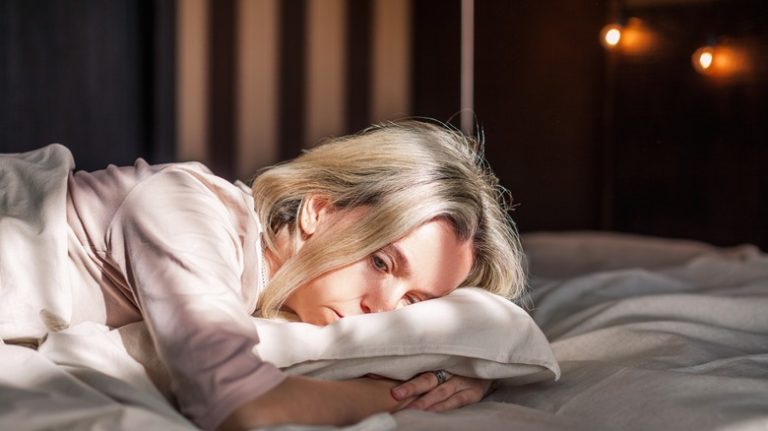If you recently switched to the keto diet and are finding yourself unable to fall asleep or experiencing poor sleep throughout the night, you’re not alone: Unfortunately, poor sleep is common as your body adapts to ketosis, the process that raises blood ketone levels and helps your body more efficiently use fat as fuel (via Healthline). But the good news is that this sleep disruption is likely only temporary — and in the long-term, a keto diet could actually improve your sleep quality.
When you first switch to a keto diet and lower your carbohydrate intake down to 20 to 50 grams per day, typically that means you miss out on L-tryptophan, an amino acid that helps the body produce the hormones serotonin and melatonin (via Insider). When those hormones are lowered, your body may take a few weeks to recalibrate. You could also be experiencing the oft-reported surge of energy from switching to burning fat for fuel, and your new energy levels are simply higher than your previous ones. Or, you may simply be experiencing the side effects of the so-called keto flu, the flu-like symptoms that typically happen in the first few weeks of a shift to the keto diet (via Perfect Keto).
Could it be something more serious?

Mark Sisson of Mark’s Daily Apple notes that he’s seen many people experiencing sleep disruption in the keto community also experiencing high levels of stress. If you’ve shifted to a keto diet in the midst of a hard, stressful time at work or at home, that combined with beginning to follow a restrictive diet could be the reason for your disrupted sleep. The increased cortisol from the stress caused by life in general, then brought about by a restrictive diet, can lead to trouble getting to sleep and staying asleep. This is especially true if you’re also trying to do things like intermittent fasting or intense exercise in the beginning stages of a keto diet. Try to decrease life stress and create a more optimized sleep environment.
If you’ve experienced insomnia since beginning the keto diet and it shows no signs of subsiding, check with your doctor — typically, sleep disruption should only last a few days or weeks at most, and for many people observing a keto diet, sleep should start to feel deeper and more refreshing after their bodies get through the initial adaptation stages.


